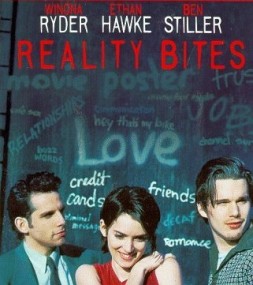Realty Bites: Agents Face Off Against Zillow, Trulia and Realtor.com
The Internet has forever changed the newspaper industry, the music business and travel agencies.
 Now it’s real estate’s turn.
Now it’s real estate’s turn.
Or at least that seems to be the case in what could be a developing feud between real estate agents and online listing services such as Zillow, Trulia and Realtor.com.
As these sites have risen in prominence, real estate agents are starting to push back, especially as they find it difficult to live without them.
In protest, a small number of agents have started to pull their listings from the sites. (In one case, an agent rambled on about the issue in a seven-and-a-half minute video on YouTube.)
A new white paper issued this week suggests that the topic is gaining momentum.
The report, written by VHT, which sells photography and video services to agents, concluded that agents are no longer competing against each other. The competition, rather, is “the fast-growing, third-party ecosystem of listing aggregators, online publishers, virtual tour providers, advertising networks and media companies that are dominating search engine results in order to capture online leads.”
 It goes on to suggest that the remedy is for real estate agents to become savvy online marketers, and to drive sales leads through their own Web sites, rather than advertising on Zillow or Trulia.
It goes on to suggest that the remedy is for real estate agents to become savvy online marketers, and to drive sales leads through their own Web sites, rather than advertising on Zillow or Trulia.
A Zillow spokeswoman says only one brokerage so far has pulled its listings — the same one that produced the YouTube video — and a Trulia spokesman said they’ve “only seen a couple” of agents remove listings.
Seattle-based Zillow went public in July, raising $70 million; San Francisco-based Trulia is expected to seek an IPO sometime this year. Realtor.com which is operated by the National Association of Realtors, is owned by Move, Inc., a publicly traded company.
“We are not their competition,” said Trulia’s spokesman Ken Shuman. “We are a marketing outlet with 20 million unique people coming ever month who are looking to buy or to rent a home.”
So, while the practice does not seem to be widespread, agents are increasingly vocal about the shift in power that has occurred over the past decade from real estate agents to online Internet providers.
Indeed, Zillow, Trulia and Realtor.com do get the majority of online traffic.
 In January, Zillow controlled 37 percent of online visits; Trulia controlled 27 percent; and Realtor.com controlled 25 percent, according to the report. The remaining 11 percent was split among dozens of brokerage firms, such as Century 21, Coldwell Banker, Keller Williams, Prudential and many others combined.
In January, Zillow controlled 37 percent of online visits; Trulia controlled 27 percent; and Realtor.com controlled 25 percent, according to the report. The remaining 11 percent was split among dozens of brokerage firms, such as Century 21, Coldwell Banker, Keller Williams, Prudential and many others combined.
“As an industry, brokerages have done a poor job of making themselves and their Web content visible to search engines,” wrote VHT’s CEO Alex Zoghlin, who authored the report.
But to understand what’s going on, it requires some basic knowledge of how the industry works, so let’s step back for a moment for a brief overview.
The Multiple Listing Service (MLS) is a list of most homes for sale in the U.S.
Real estate brokers receive the list and can post it on their Web sites. But other sites, like Zillow and Trulia, are not brokers and therefore don’t have access (unless they strike agreements with the different MLS divisions across the country).
Up until now, Zillow and Trulia have used a mix of sources, including agents, who volunteer to post their listings on their Web site for free.
Zillow and Trulia then make money, in part, by selling advertising to agents, who want leads for home buyers and sellers.
But it’s not exactly clear what has some agents so upset, and more importantly, it’s difficult to separate fact from fiction.
ARG Abbott Realty Group broker and president Jim Abbott, who recorded that YouTube video, lists a number of reasons for pulling his listings from the sites. He says the information is often display incorrectly, or is out-of-date; other claims he makes include theft of intellectual property and poor customer service.
What Abbott didn’t come right out and say is that he is not happy with the shift in power, or that the sites are profiting off the information that agents give them.
But late last year, Edina Realty of Edina, Minn., was willing to say it: The company said it pulled its listings because it was unfair that the agents are giving up their listings for free to the sites, which were then profiting off those same agents.
But according to Zillow’s spokeswoman Cynthia Nowak, that is not entirely true.
“What many agents don’t understand is that it is completely free to receive prominent placement on their listings,” Nowak said. “All they have to do is sign up for a free Zillow profile and verify their contact information, and their name, picture, contact info, etc. appears at the top of their listings.”
Still, to pull a listing off Zillow or Trulia at this point is somewhat anti-homeowner. The home’s seller is usually looking to reach the largest possible audience in order to sell their home — and is not interested in the politics of placing listings online.
An agent in Phoenix Jay Thompson, who goes by the handle “The Phoenix Real Estate Guy,” sided with Zillow. In a long blog post, Thompson broke down each one of Abbott’s points and explained why he disagreed.
On one point, Abbott said that syndication sites use peer pressure to sell advertising to agents.
Thompson’s response: “If you don’t like the fact that syndication sites sell advertising, that’s fine. Don’t buy it. Peer pressure? Put on your big girl panties and stand up to the peer pressure and do what YOU think is right.”
But who knows if his statements were entirely unbiased? Two months later, Zillow hired The Phoenix Real Estate Guy as its director of industry outreach and social media.
But at least one part of his blog post is true, no matter where he works.
He asked, “Is there an ‘anti-syndication movement’ afoot in the real estate vertical? Maybe. Maybe not. Only time will tell where this is headed.”
Indeed, it is not clear. After all, this might be another example of an industry playing catch-up with the Internet.








